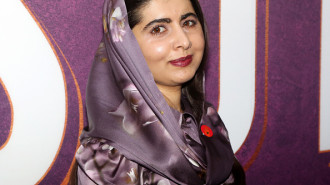Libyan parliament lashes out as Algeria recognises GNU
The Libyan House of Representatives has condemned Algeria's recognition of the Tripoli-based Government of National Unity (GNU) and refusal to acknowledge the competing government in Tobruk.
Yusuf al-Akouri, head of foreign affairs for the Tobruk-based House of Representatives, said in a statement published on Saturday that Algeria's "insistence" in recognising the GNU led by Abdulhamid Dbeibah over the opposing body led by Fathi Bashagha amounted to "an interference in Libya’s sovereign affairs".
"Algeria’s actions deny the autonomy of our elected representatives, and threaten the internal unity of Libya itself," al-Akouri said.
"At a time when we need to rely on strong historical ties to our brothers and sisters in Algeria, we are shocked at the Algerian government’s position - which transgresses all bounds of friendship, dialogue and respect for Libyan national sovereignty."
Algerian president Abdulmajid Tebboune endorsed the internationally-recognised GNU after meeting with Dbeibah in Algeria last week, as the Tripoli-based prime minister toured neighbouring countries in a bid to shore up support.
Tebboune's statement caused rancour among supporters of Fathi Bashagha, who was appointed interim prime minister by the Libyan parliament in February.
The parliament is seeking to take control of Libya's political future after the collapse of an election that was planned for December, saying the GNU is no longer valid and pushing any new election back until next year.
The UN's Libya advisor and Western countries have said Dbeibah's GNU, installed a year ago through a UN-backed process, remains valid, and have urged the parliament to focus instead on bringing elections forward.
Dbeibah has said he will only cede power after a rescheduled election, which he has said will be held in June.
The struggle over control of Libya's government after the collapse of a scheduled election in December threatens to return the country to the conflict and division that have prevailed for much of the period since a NATO-backed revolution in 2011.



